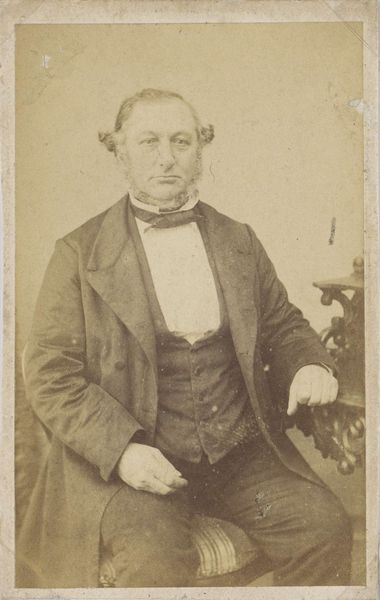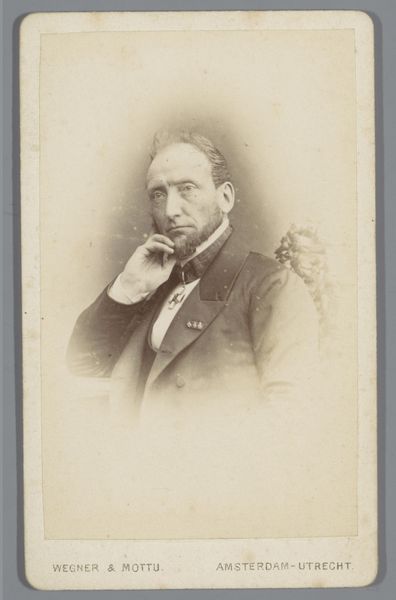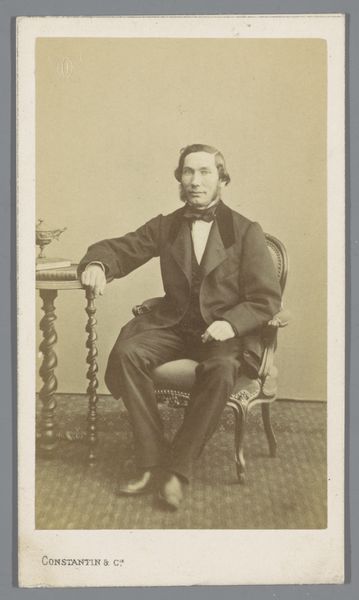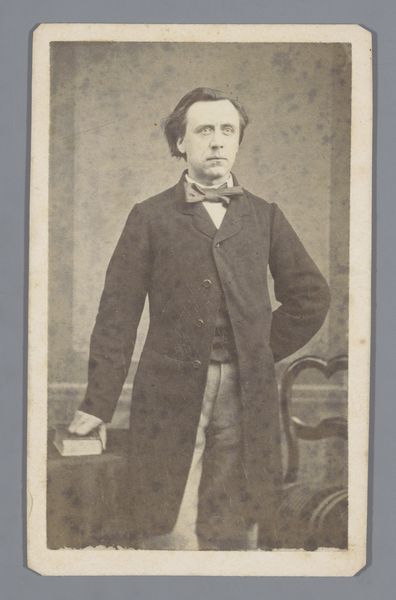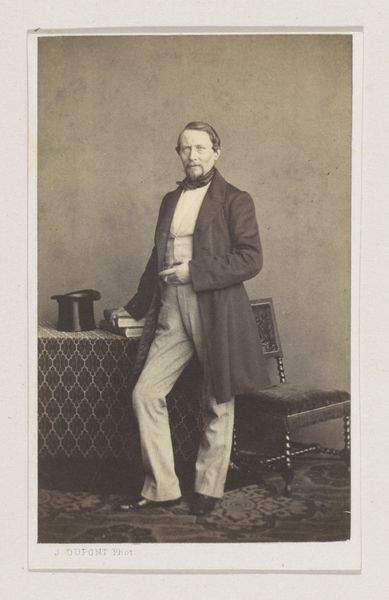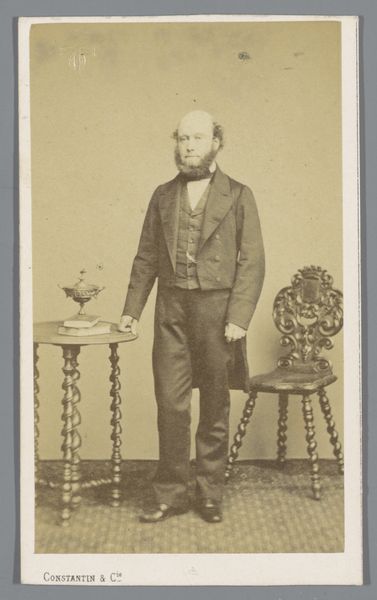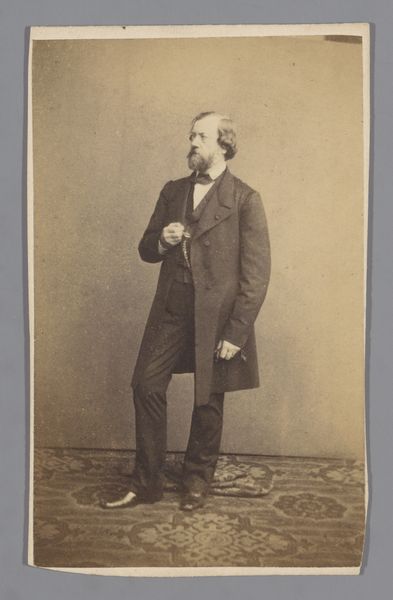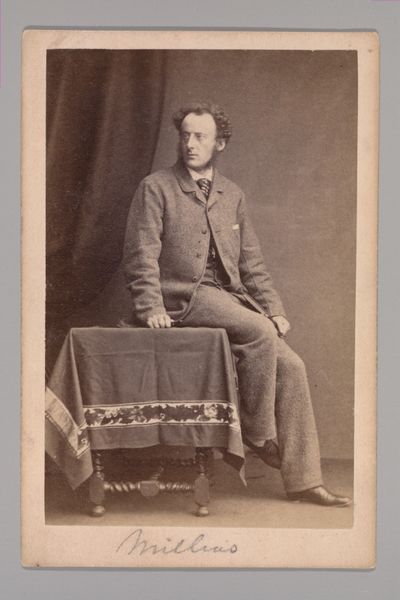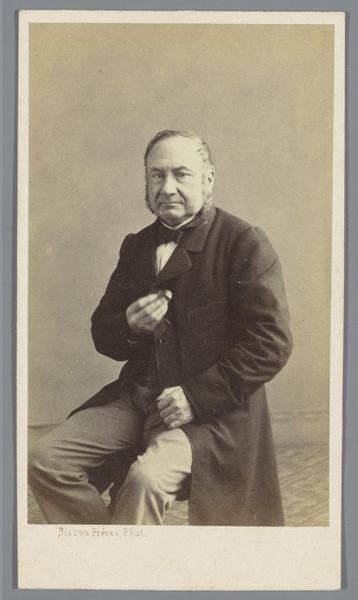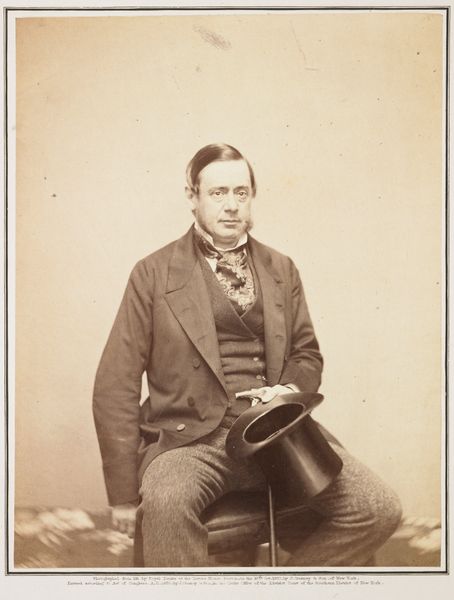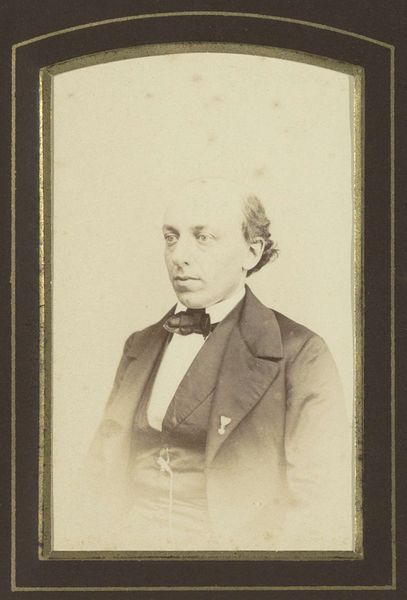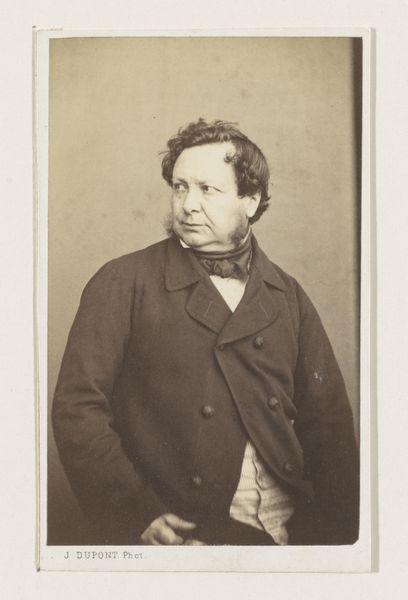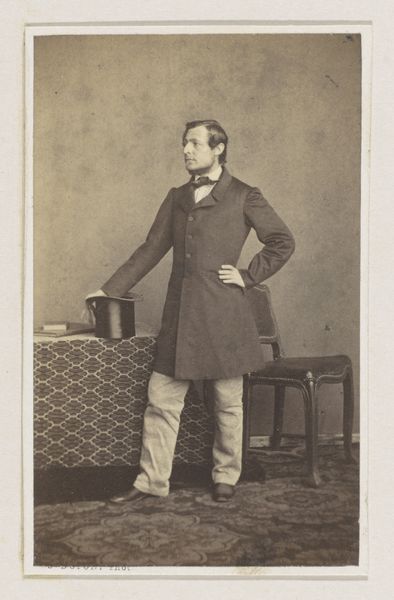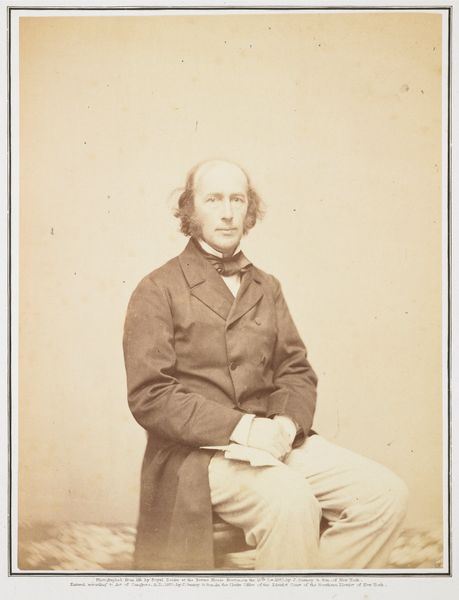
photography, gelatin-silver-print
#
portrait
#
16_19th-century
#
photography
#
gelatin-silver-print
#
realism
Dimensions: height 106 mm, width 61 mm
Copyright: Rijks Museum: Open Domain
Léon Cremière created this albumen print of E. Gotz in Paris around 1865. In the mid-19th century, photography served as a powerful tool for shaping social perceptions and documenting historical events. The sitter’s formal attire, with its bow-tie, waistcoat and watch-chain suggests bourgeois respectability. During the Second Empire, Napoleon III invested heavily in modernizing Paris, which became a cultural hub. Photography studios flourished, catering to a growing middle class eager to immortalize their status. The carte de visite, like this one, became a popular format for portraiture. These images were often exchanged among friends and family, reinforcing social bonds. Looking closer at the print’s inscription and studio address, we can uncover the institutional networks that supported the business of photography in Paris at the time. By consulting archives and historical directories, we can reveal more about the lives of both the photographer and the sitter. In doing so, we understand how photography reflected and influenced the social fabric of the time.
Comments
No comments
Be the first to comment and join the conversation on the ultimate creative platform.
